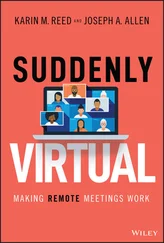While Irena was still a child, her parents used to compare the Communist youth to Hashomer Hatsa’ir in Zalachov, and their conclusion was that both movements had treated the faith of their fathers brutally. But the Communists went too far.
Ernst is an author, not a Communist . Irena tries to appease them.
What does he write about?
About his life .
Let’s hope he’s not writing against the Jews .
Irena clearly recalls Holocaust Remembrance Day in their home. Twenty-seven memorial candles burned in the kitchen. Her parents fasted and took on a vow of silence for the day. Her mother would lie on the sofa and groan now and then. In her last year of life Irena’s father begged her to break her fast and drink a glass of water. Irena’s mother responded without opening her eyes and with a strange movement of her head. “Nothing will happen to me,” she said.
Usually her parents depart after an hour or two. They leave suddenly, without warning, which momentarily frightens Irena. In the past she believed that by doing this they were expressing dissatisfaction with her way of keeping the house. Of course that fear was groundless. They had never once uttered even a word of criticism. They always apologized for not bringing flowers.
After her parents depart, Ernst appears in front of Irena again. One time she saw him drifting on the river, trying to stop the boat he was on. It was obvious that he was expending great effort, but the boat didn’t stop. In vain he steered it toward the bank, but the current was stronger than he was. Finally, he raised one oar in a gesture of protest and shouted. But the next day, when Irena told Ernst what she had dreamed, he just smiled and said, “In my youth we used to row on the river.”
Since Ernst returned from the hospital, another matter has been troubling Irena: his medicine. Every four hours she hands him his pills. But she forgot several times, and this torments her. Ernst swallows the pills and explains to Irena that his writing was flawed because spite and didactic thinking distorted it, and now it’s hard to correct. “Every night I try to uproot the poisonous weeds, but there’s still a lot of work to do. The Russian authors knew how to love their people, together with their pain and their wounds. Why does that effort cost me blood?”
Irena has heard these arguments before. But since Ernst’s return from the hospital, they have become more strident. Irena wants to tell him, You mustn’t be angry at yourself , but she doesn’t say it. She feels his intense closeness now, and every time she touches his hand or he touches her neck, her nights are stormy. One evening he grabbed her and, without any warning, kissed her leg.
ERNST IS WRITING FEVERISHLY NOW, AND HE HAS EVIDENTLY connected with distant worlds. Since his return from the hospital, the sharp gleam has returned to his eyes. When Irena arrives in the morning, he lifts his eyes up from his papers. “And what did you bring me from the outside world?” he asks. Irena tells him what happened to her on the way there, what she saw in the bakery, and whom she met.
Yesterday, Ernst asked Irena whether her father used to pray. The question greatly embarrassed her. Her father didn’t pray regularly, but several times a year he would wrap himself in his tallis, put on his tefillin, and begin to pray and weep. Irena was fearful at this sight of her father, and when she would ask her mother why he was praying that way, she was given no clear answer. She wouldn’t dare ask her father. In her heart she was sorry she had touched upon this secret of his. There are things one mustn’t speak about , she would say to herself, and when she said it, her father would appear again, wrapped in his tallis, weeping and keening. Her mother would sit in the kitchen with her face in her hands, frightened. When her father finished his prayer, she wouldn’t go to him or say anything; this was his secret, and she had no part in it.
One evening Ernst tells Irena that a great stone has been rolled off his heart, and perhaps now the route would be clear. Irena knows the word “route,” but she has never used it that way. What route? she is almost tempted to ask. She knows that if Ernst wants to explain, he’ll do so. If he doesn’t explain, that means that he’s in the midst of his work and his thoughts haven’t yet fully matured. When Irena returns home that night, she lights a candle and prays in her soul for Ernst’s recovery to be rapid and for him to find his way in his writing.
Irena knows that writing is Ernst’s arena. For years the devil stood in his way and blocked him with obstacles. Not very long ago Ernst explained to her at length that all his efforts to reach the “hidden source” had been in vain. Without access to that source, there was no point to his work.
Irena doesn’t know what that “hidden source” is, but she doesn’t think that it’s pain or guilt or regret but a spring of living water. Clear water, which one draws up from the depths, possesses a virtue that opens the heart.
Since Ernst told her this, Irena has prayed for God to lead him on the right path, to place the right words in his pen. She feels that because of his weakness, he needs more help. Lighting the candle and praying bring Irena’s day to a close. Afterward, she sits at the table and reads a book or dozes off.

One morning Ernst tells her, “I have returned to the Carpathians.”
“How is it there?” she asks.
“As it was, with no change.”
“When were you last there?”
“At the age of eight.”
That’s very moving , she almost says, but she immediately remembers that Ernst doesn’t like words such as “moving.”
“Irena, what’s your earliest memory?” He asks her directly.
“I don’t know.”
“Why don’t you know?”
“My parents told me a lot about the DP camp in Frankfurt. Sometimes I think that I remember things from the age of two, but that can’t be.”
“For me the Carpathians have been wiped out of my memory. I’m amazed at how that happened to me.”
“Are you pleased?”
“I don’t know what to tell you.”
Ernst usually expresses his opinions clearly, but on some days surprise grips him, or weakness, and he openly admits, “I don’t know what to tell you.”
Irena wants to help him, but she doesn’t know how. At times she has the feeling that it would be better not to mix in. Too much talk could disturb the direction of his thoughts.
Sometimes Irena thinks that if she read more, she could understand Ernst’s efforts. Her parents left her shelves filled with books: memorial volumes, survivor testimony, and diaries. Since they passed away, she has bought a few more books, and in the evening she looks through them. Some of them — the diary of Anne Frank and the diary of Moshe Flinker *—she reads over and over again.
As she reads, Irena pictures the cities and villages where the Jews were trapped and envisions herself trying to escape with her parents. When she reads Primo Levi’s If This Is a Man , she sees her parents trudging through the heavy snow in Auschwitz, their legs swollen. From books she learns what her parents didn’t tell her. They actually told her very little. Had she known what they went through, she would have loved them more. You have to hold the people who were in Auschwitz in your arms and love them morning, noon, and night , she once said to herself with great feeling.
*Moshe Flinker was a Jewish teenager from the Netherlands who kept a diary during World War II. He and his parents were killed in Auschwitz in 1944. (Ed.)
Читать дальше













